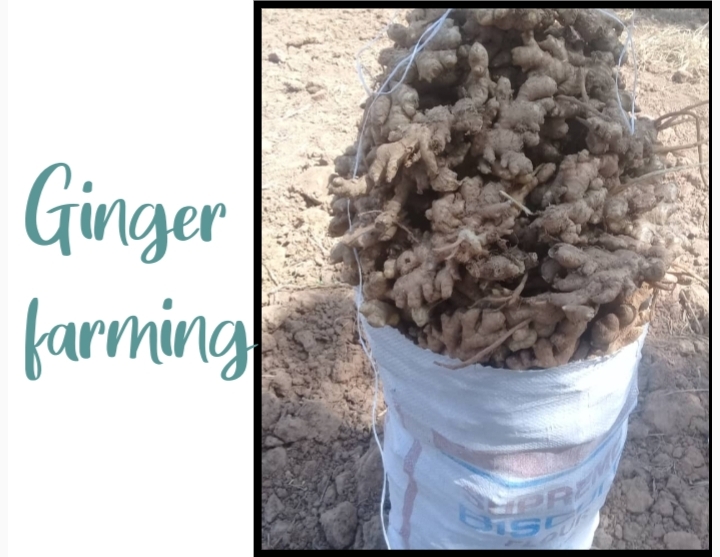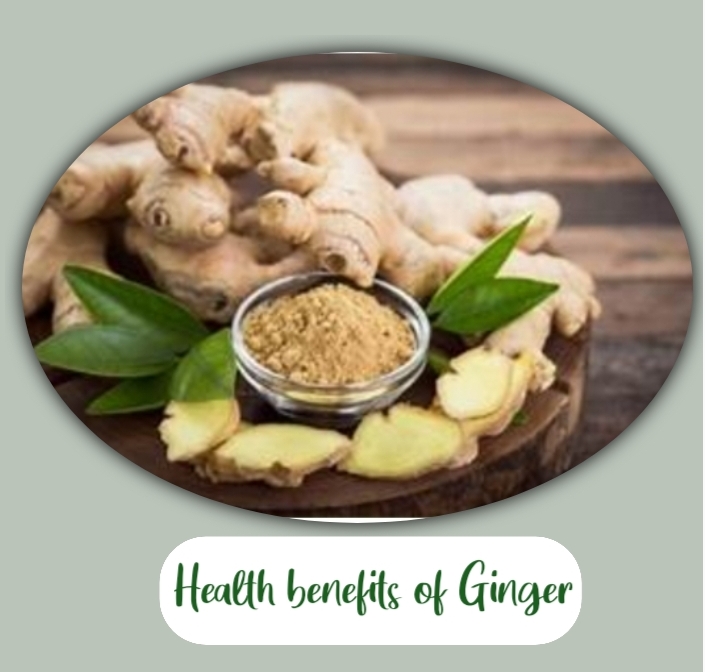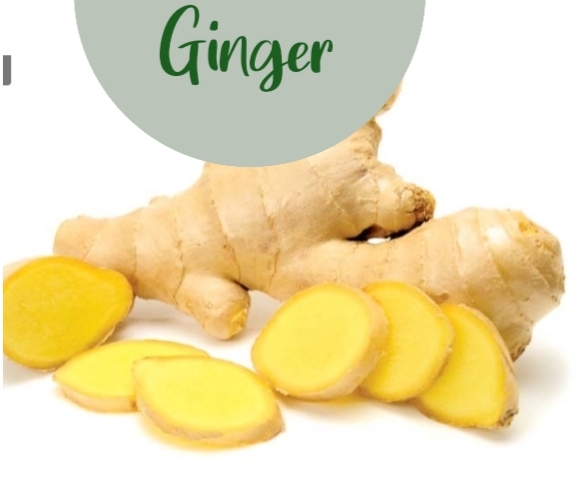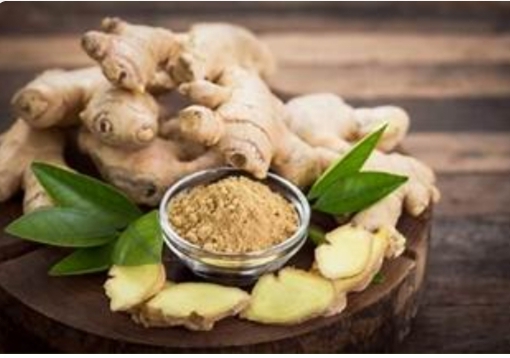Ginger cultivation in Nigeria represents a lucrative sector within the agricultural industry due to the country’s favorable climatic conditions for growing this spice. How Profitable Is Ginger Business In Nigeria, Now As one of the world’s largest producers and exporters of ginger, Nigeria enjoys a significant position in the global market, particularly known for its high-quality, potent variety. The profitability of the ginger business is bolstered by both local and international demand. Domestically, ginger is used widely in culinary and medicinal products, while internationally, it is exported to countries in Asia, Europe, and America, which use it for various food products, health supplements, and as a raw material in the pharmaceutical industry.
The economic prospects of the ginger business are further enhanced by the increasing global awareness of health and wellness, where ginger is prized for its numerous health benefits including anti-inflammatory properties and digestive aids. How Profitable Is Ginger Business In Nigeria, Farmers who engage in ginger farming can achieve substantial yields with the right agricultural practices and market strategies. Moreover, the Nigerian government supports the agriculture sector with initiatives aimed at boosting production and ensuring sustainability. These factors combine to make the ginger business not only profitable but also a viable opportunity for growth and expansion in the agricultural sector of Nigeria.
How Profitable is ginger business in Nigeria

The ginger business in Nigeria is increasingly lucrative, presenting significant economic opportunities for both local farmers and exporters. Nigeria stands as one of the largest producers of ginger in the world, particularly noted for its high-quality and highly sought-after variety. The demand for Nigerian ginger is robust both locally and internationally, with major markets in China, India, and the Middle East. The versatility of ginger, used in various forms such as fresh, dried, powdered, or as oil, enhances its marketability and opens diverse revenue channels.
With the right agricultural techniques, farmers can achieve yields of up to 8 tons of ginger per hectare. At current market prices, this can translate to a revenue of at least 6 million naira from fresh ginger alone. Moreover, the profitability can significantly increase if the ginger is dried before sale. By processing the harvest into dried form, farmers can potentially double their income to over 14 million naira per hectare. Such high profit margins, combined with support from government and non-governmental organizations through agricultural loans and training programs, make ginger farming a particularly profitable venture in Nigeria’s agro-economy.
Read more: How Much Is 1 Carton of Indomie Super Pack? : 2024 Lastest Price of 1 Carton of Indomie Super pack.
Health benefits for ginger

Ginger is renowned not only for its distinctive flavor but also for its extensive health benefits, which make it a valuable addition to any diet. It possesses potent anti-inflammatory and antioxidant properties, helping to reduce inflammation and combat oxidative stress. This is particularly beneficial in managing conditions like arthritis and aiding recovery from exercise-induced muscle soreness. Furthermore, ginger is effective in alleviating nausea and vomiting, especially in pregnant women and those undergoing chemotherapy treatments.
The root promotes digestive health by accelerating stomach emptying, which aids in relieving indigestion and gastrointestinal discomfort. One of the less commonly known benefits of ginger is its ability to reduce intestinal gas and bloating. By decreasing fermentation and constipation in the digestive tract, ginger can alleviate the discomfort and bloating often associated with these conditions.
Another significant benefit of ginger is its antioxidant content. These molecules play a crucial role in managing free radicals, harmful compounds that can cause cellular damage if their levels become excessively high. This antioxidant activity not only helps protect against cellular wear and tear but also may reduce the risk of chronic diseases.
Additionally, studies have indicated that ginger can help lower blood sugar levels and improve heart disease risk factors in individuals with type 2 diabetes. Adding ginger to your diet can be easily achieved by incorporating it into smoothies, teas, or various dishes, providing a natural way to enhance flavor and boost health.
Benefits of Ginger
Ginger, derived from the Zingiber officinale plant, is a staple in both the culinary and medicinal world. Not only does its warm, spicy flavor enhance dishes like curries, soups, and teas, but ginger also boasts a long history in traditional medicine, particularly in Asian cultures. Utilized in systems such as Traditional Chinese Medicine (TCM), ginger has been used to treat a variety of ailments including colds and arthritis.
How Profitable Is Ginger Business In Nigeria, The root contains over 100 active compounds such as gingerols, shogaols, and paradols, which contribute to its health-promoting properties. These compounds are especially known for their anti-inflammatory effects and their ability to improve health outcomes in chronic conditions such as type 2 diabetes.
As a supplement, ginger offers numerous benefits. It is renowned for reducing inflammation, which can help manage and alleviate symptoms in various inflammatory conditions. Additionally, ginger supplements can support digestive health, relieve nausea, and may even contribute to cardiovascular health by reducing cholesterol levels.
However, while ginger supplements are generally safe for most people, they can have potential side effects and interact with certain medications. It’s important to consider these factors and consult with a healthcare provider to ensure safe usage, particularly for those with underlying health conditions or those taking other medications. This holistic approach to using ginger not only maximizes its culinary uses but also leverages its therapeutic properties to support overall health.
Can ginger cure infections

Ginger, renowned for its robust flavor and medicinal benefits, is increasingly recognized for its potential to combat infections. Its antimicrobial properties suggest it could be an effective natural ally against bacterial and fungal infections. Laboratory studies have highlighted ginger’s effectiveness in targeting pathogens such as Staphylococcus aureus (S. aureus), a notorious bacteria responsible for a variety of diseases, from minor skin infections to life-threatening conditions. The active compounds in ginger, such as gingerol, contribute to its ability to inhibit the growth of these pathogens, supporting the immune system in its fight against infection. While ginger shows promise, it is crucial to remember that it should supplement, not replace, traditional medical treatments, particularly for serious health issues. Always seek advice from healthcare professionals before relying on herbal remedies for medical conditions.
Can ginger cure sore throat
Consuming raw ginger is considered a highly effective method to alleviate the symptoms of a sore throat. How Profitable Is Ginger Business In Nigeria, To harness the benefits of this natural remedy, start by peeling the bark off the ginger root and cutting it into manageable chunks. These pieces can be chewed directly, allowing the juices to soothe the throat as the ginger turns to pulp. Depending on your preference, the pulp can either be swallowed to maximize the intake of ginger’s medicinal properties or spit out after chewing. It is recommended to chew on raw ginger slices 2-3 times a day to help relieve sore throat discomfort. This method taps into the anti-inflammatory and antibacterial qualities of ginger, providing a natural and accessible form of relief.






8 comments
Really good to come across such a writeup! I love to venture in ginger farming very soon
Seems like ginger business is very profitable, would venture soon.
This is amazing!
I do much love the blog.
Keep up the good work 👍
Ginger business is very lucrative.
Very educating ✌️
Ginger business is a very lucrative one
I will love to go into this business asap
Informative, thank you